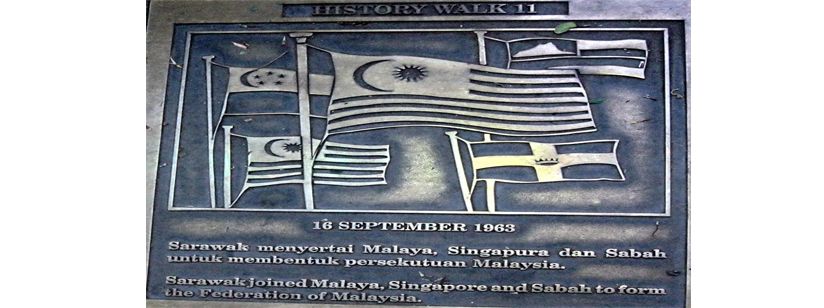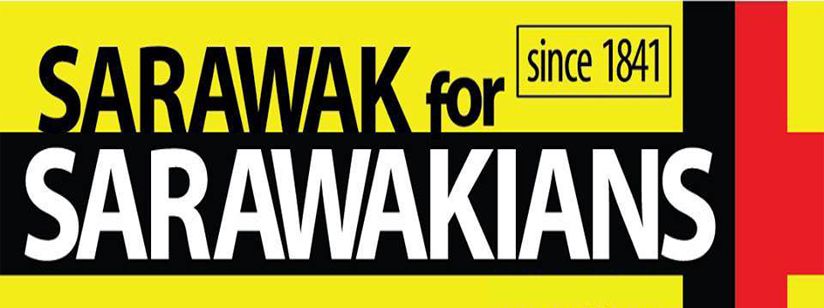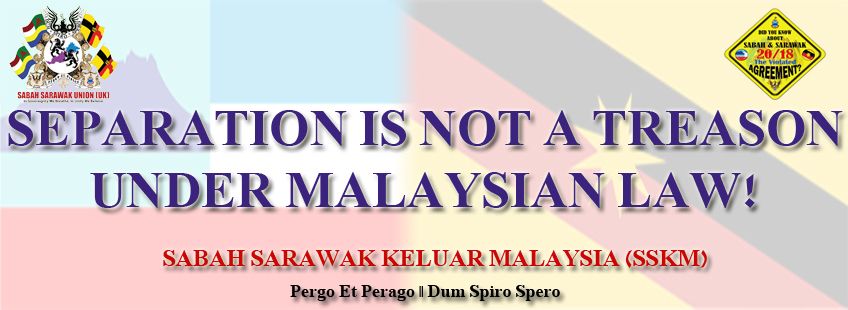Thursday, 24 September 2015
Sabah to set up panel on transfer of federal power
Committee will be chaired by state secretary and made up of top government officials in state departments and agencies, says chief minister.
KOTA KINABALU: Sabah Chief Minister Musa Aman said today the state cabinet will set up a committee to study areas of the federal government’s administration that should be transferred to the state government.
He said this was on top of what he announced recently on giving the state government greater control over rural development projects to expedite their planning and implementation.
“This is also in line with the recent announcement by Prime Minister Najib Tun Razak on the devolution of power from the federal government to the state government,” he said after chairing the state cabinet meeting, here, today.
Musa said the committee would be chaired by state secretary Sukarti Wakiman and made up of top government officials heading key state departments and agencies.
He said those in the committee would work closely with their federal counterparts to identify areas that needed to be decentralised to allow more decision-making powers at the state level.
“This needs to be done because there were many instances of delay in the planning, channelling of funds and project implementation because of too many agencies involved at the federal level, bureaucracy and politicking,” he said.
Musa said with the committee set up, he hoped key areas of the government’s delivery system would be identified, studied and a system set up to empower the state to exercise control over planning, funding and implementation of government projects and programmes.
“The BN government at the federal and state levels have a common objective, which is to bring more development to Sabah and the nation as a whole.
“We believe the devolution of power will enable us to achieve this objective in a timely and more efficient manner,” he said.
BERNAMA
Source: Free Malaysia Today
HARRIS SALLEH: MALAYSIA AGREEMENT NOT BINDING
NATIONALISTS CALL FOR DE-COLONIZATION OF SABAH & SARAWAK
Former Sabah Chief Minister Harris M Salleh has openly declared that the Malaysia Agreement 1963 (MA63) the Inter Government Committee (IGC) Report and Sabah's 20 Points are not legally binding.
He said it was that is the authority in Malaysia.
A lawyer (who asked that his name be withheld) said Malaysia was created by the Malaysia Agreement 1963 and if MA63 was invalid then the Malaysia Parliament was an illegal body and the Federation of Malaysia was also illegal.
The effect is that Malaya has illegally ruled and control Sabah and Sarawak for 52 years without any legal authority.
The lawyer said this was indeed a great boost to the nationalists who are championing for decolonization of Sabah and Sarawak independence from Malaya.
He said Sabah and Sarawak were never granted independence under any Parliamentary Act by their former colonial master Britain as was the required process to relinquish and vest sovereignty in all former colonies for independence. This means British de-colonization was never completed when Britain had merely handed over Singapore, Sabah and Sarawak as colonies to Malayan rule.
Malaysia existed as "de facto" state by Malaya illegally acquiring 3 new colonies with UK assistance.
It follows that everything done in the name of Malaysia since 1963 is illegal.
The lawyer opined that Malaya effectively occupied Sabah and Sarawak with its army and approaches should be made to the United Nations to call for their de-colonization.
Source: Borneo Wiki
Thursday, September 24, 2015
Agreement of Malaysia
,
Exposing the Truth
,
Fact
,
History
No comments
Shad Faruqi: 57 MPs can make or break Putrajaya
Malaysia’s survival hinges on the Malaysia Agreement 1963, an International Agreement on Full Autonomy and Federation for Sabah, Sarawak.
KOTA KINABALU: Emeritus Professor Shad Saleem Faruqi, a constitutional law expert who is with the UiTM Faculty of Law, has stressed during a closed door discussion in the Sabah capital that Full Autonomy and Federation was the basis on which the two Borneo nations came together with Malaya and Singapore in 1963. “They came in on the explicit condition that their autonomy would be safeguarded in full and that Malaysia would be a Federation,” said Shad Faruqi during his talk, “Constitutional issues in Federal-State Relations” at the Malaysia Federalism and the Way Forward closed door discussion.
The discussion was arranged by Sabah Empowerment and Economic Development (Seed), a think tank, over the weekend.
“The peninsula would be better off if they recognize this,” said Shad Faruqi. “At the same time, Sabah and Sarawak should accept the Federal Constitution as the Supreme Law of the Land.”
“The situation warrants the need for discussion given the fact that 57 MPs in the Malaysian Parliament are from Sabah and Sarawak. This could make or break future governments. How far the Malayanisation and Islamisation of Sabah and Sarawak would be tolerated remains to be seen.”
When Sabah and Sarawak entered into Federation with Malaya/Singapore, it was clear that they were culturally and historically distinct, said the Professor. “They were not Malay and Muslim.”
“Besides, they have enormous economic potential and despite this they are the poorest states in the Federation.”
He attributed the poverty of the two Borneo states to bias on the part of the Federal Government in Putrajaya and the fact that Malaysia was not a true Federation. “One result of this has been the loss of the two-thirds majority that the ruling coalition used to have in Parliament highlighting the plight of Sabah and Sarawak.”
For every ringgit the Federal Government collects in revenue, said Shah Faruqi, the state gets 10 sen. “This is very disappointing and needs to be addressed. This is not how a Federation should work.”
He conceded that it would be for the people to decide whether a unitary system, as at present, was better than a Federal system. “It’s a fact that it’s the unitary system which led to the loss of the two-thirds majority in Parliament.”
All this should be read within the context of the on-going talks on “more powers” for the Sabah and Sarawak Governments, he added. “The Federal, Sabah and Sarawak Governments should sit down and discuss and negotiate if they are serious about restoring the Full Autonomy status the two Borneo nations were promised in 1963 and the Federation.”
The Professor said that devolution, more powers and empowerment, the terms used by Prime Minister Najib Abdul Razak, were inaccurate. “It’s not about devolution. Many of the powers of Sabah and Sarawak are already in the Constitution. It’s not empowerment. It’s about giving back what was pledged in 1963.”
The Malaysia Agreement 1963 is an International Agreement, pointed out Shad Faruqi, and cannot be treated as an internal Memorandum of Understanding (MOU) between states.
The 20 Points (Sabah) and 18 Points (Sarawak), he stressed, was not law at all but gentleman’s agreements which the Federal Government should honour. “There should be discussions between the people of Sabah and Sarawak with leaders in the peninsula to iron out these Agreements to investigate how many points have been incorporated in the Federal Constitution or otherwise.”
‘Many of the 20 Points and 18 Points have not been incorporated into law and hence they may have no legal status.”
There’s no legal duty (to incorporate the points into law), he argued, but it’s a moral issue. “Politically, it’s important in terms of honouring a gentleman’s agreement for us to listen to their concerns and also for the survival of the Federation.”
Source: Free Malaysia Today
Catalan leader vows independence in 2 years should secessionists win snap vote
Catalonia won't need a referendum to secure independence if Sunday's regional election proves a success for secessionist candidates, the region's leader Artur Mas says. And if Spain does not agree, Barcelona will not pay its debts.
The situation in the country has been heating up for some time now. Just recently, some 1.4 million Catalans showed their support for independence from Spain by taking to the streets, waving the region’s flag.
Earlier Artur Mas, Catalonia's President of the Generalitat, promised to push for secession from Madrid if pro-independence parties take victory in the snap elections this month. In an interview to AFP he reaffirmed that commitment, promising independence within 18 months or two years.
"Clearly, if we get a majority of the votes on September 27, then that's the referendum done," he said.
Mas further warned that if Spain does not agree, Catalonia would not help Madrid repay its financial debts. This, he said, was a defense move against any independence opponents waging a “campaign of intimidation.”
Madrid is understandably attached to the northeastern region, which is an economic powerhouse accounting to almost a fifth of the whole country's GDP. High-ranking officials and banks alike have warned of economic and financial disaster should Catalonia quit.
Mas says he wants Catalonia to have an independence referendum the way Scotland did last year - despite the secession move failing back then. But Madrid has blocked the initiative to hold the popular vote, so Mas moved to hold the snap elections in late September as an added, indirect demonstration of the region’s desires.
"If we won a majority of seats but not a majority of votes and the Spanish government offered us a binding referendum on independence – though I am very skeptical about whether it would do so – then we would listen," he further clarified, adding that he hopes for a friendly break between the two entities.
He also hopes for the region to stay within the EU but said that this agreement must be reached before a decision on independence is made. If successful, the leader promised Catalonia would take its share of Spain’s financial debt. In the event that no decision is made, “we will have no obligation to pay Spanish debt.”
"If it does not make an agreement with Catalonia, how will Spain be able to pay back its debts, which will rise to 120 percent of its output, while it loses the most productive part of its economy?" he pondered.
"If things get as complicated as that - and there is no reason why they should – it is the whole of Spain that will have a problem."
The latest polls show parties favoring independence winning nearly half of the vote, as well as an absolute majority in the Catalan parliament.
Mas hopes that in the event of victory, Catalans would be voting on a new Catalan constitution within the 18-month to two-year period he proposed.
Source: RT.com





























































